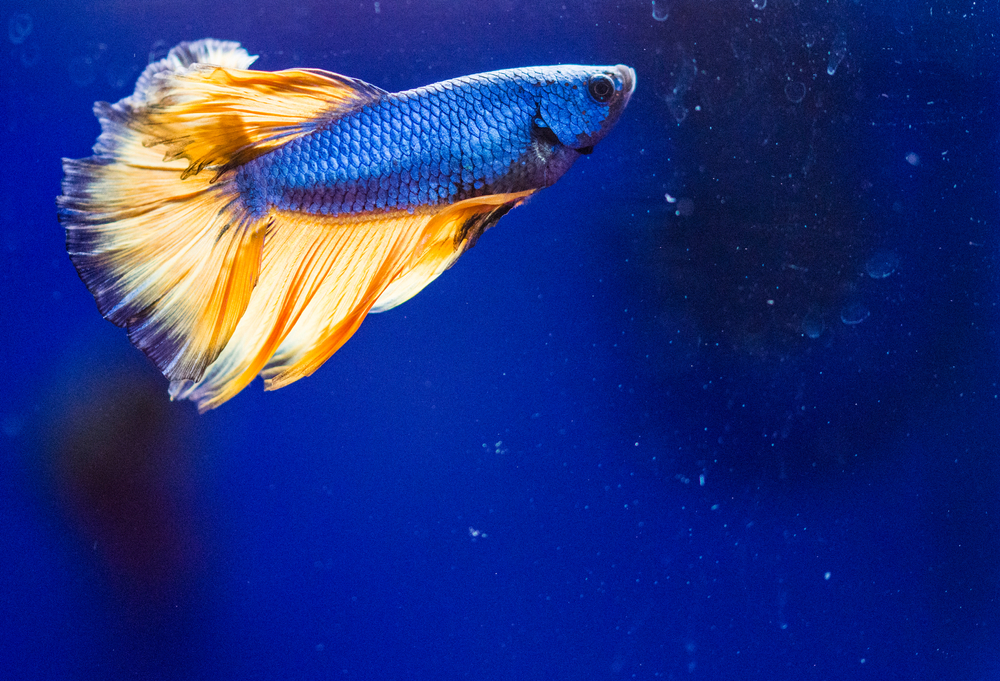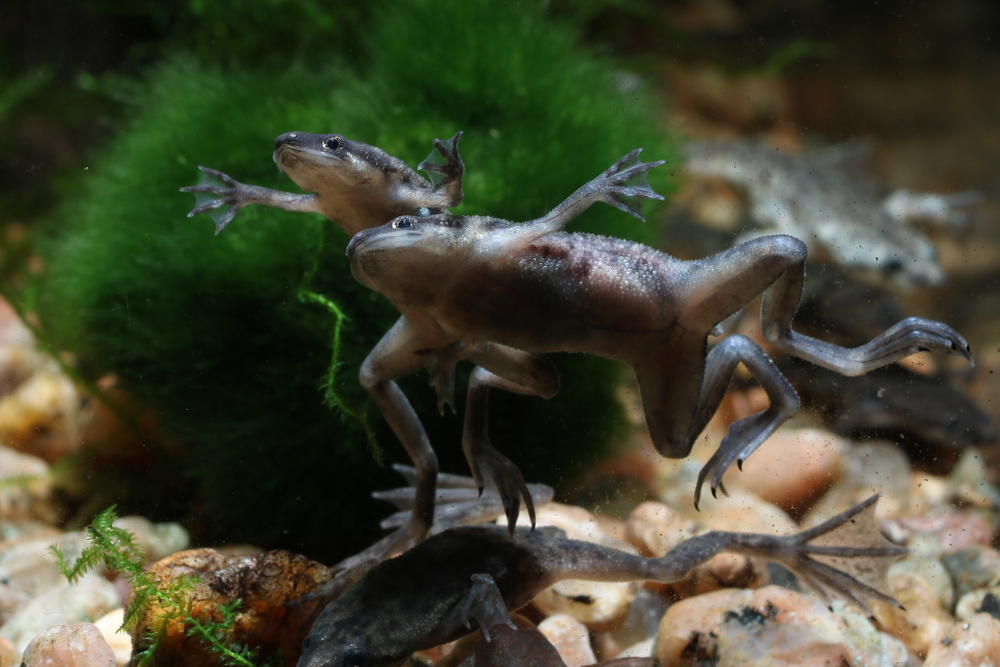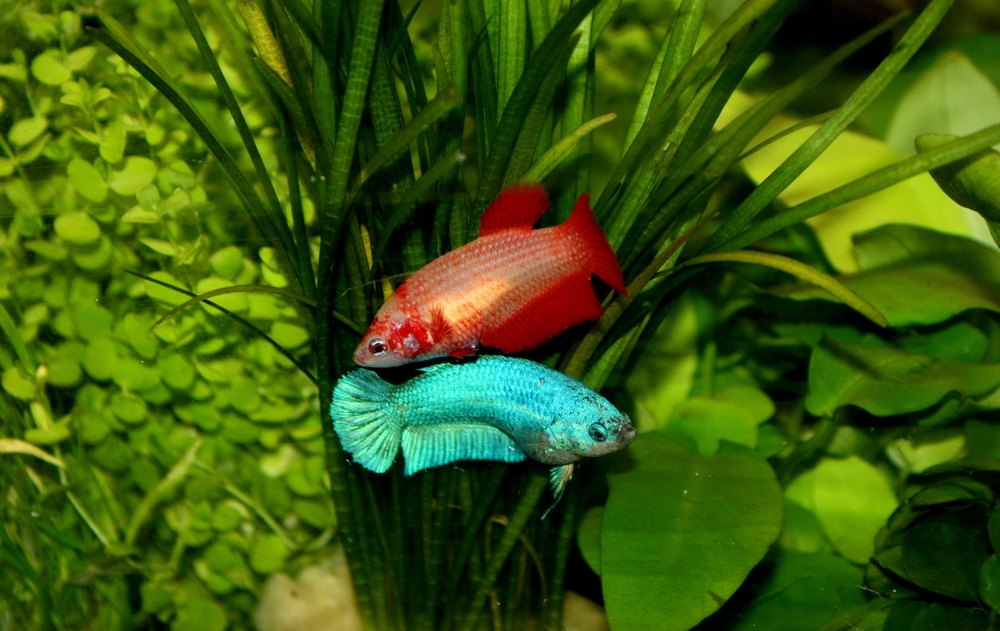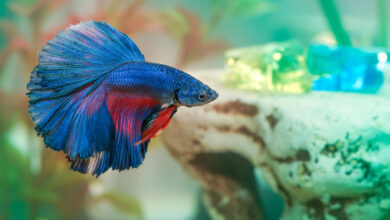Q&A: Bettas, Plants, Lights, And Quirky Feeding Habits
When you purchase through links on our site, we may earn a commission. Here’s how it works.
Every betta keeper has questions, sometimes heartbreaking, sometimes practical, and sometimes just plain funny. One of our readers, Joan A., reached out to us after losing her beloved betta and shared a few things she’s been wondering about with her new bettas. Her questions are ones many fishkeepers can relate to, so we’re answering them here.
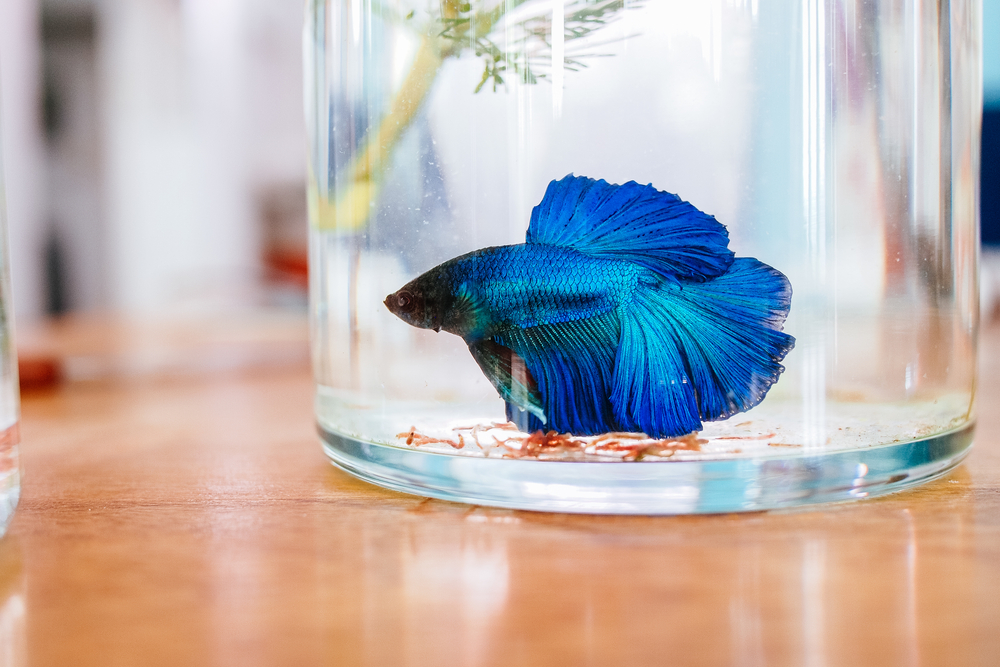
Can Bettas Eat Dill Weed or Other Kitchen Plants?
This is one of the most common questions new betta owners ask after experimenting with greenery in their tanks.
Table of Contents
Question: My betta, Caddy, died after nibbling on dill weed. I never knew it could hurt him. Is there a safe plant I can put in the tank that won’t harm my new betta?
Answer: We’re so sorry about Caddy. Losing a fish you’ve bonded with is never easy. Bettas are naturally carnivorous fish that mostly eat insects, larvae, and other protein-rich foods. They don’t really need plants in their diet, but they sometimes nibble on greenery out of curiosity, boredom, or by mistake.
In most cases, tasting a safe aquarium plant doesn’t harm a betta. But kitchen herbs like dill can carry risks:
- Essential oils and compounds: Dill and other herbs can leach chemicals into the water that stress a betta’s system.
- Chemical residues: Store-bought or garden dill may have pesticides or treatments that are toxic to fish.
- Water chemistry shifts: Any plant matter that decays quickly can spike ammonia or lower oxygen levels.
So while eating a tiny piece of dill weed usually isn’t instantly lethal, there’s enough uncertainty that it’s best to avoid herbs altogether in a betta tank.
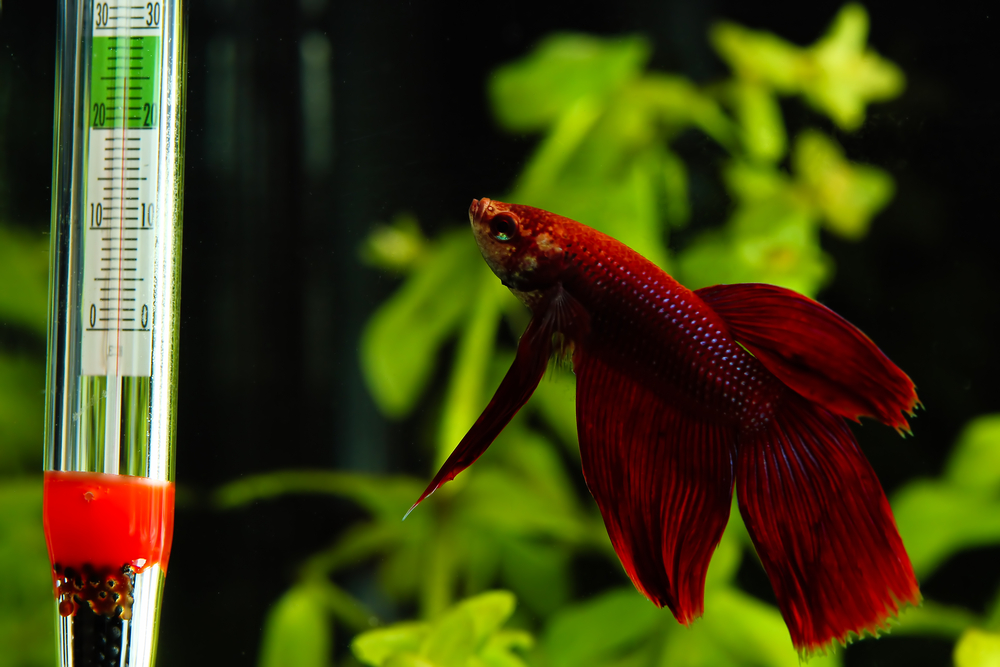
Instead, choose aquarium-tested plants that are both safe and beneficial:
- Anubias and Java Fern – Hardy greens that thrive in low light.
- Amazon Sword and Marimo Moss Balls – Provide enrichment and resting spots.
- Java Moss – Creates natural hideouts and soft bedding.
These plants not only look beautiful but also stabilize the tank environment. You can explore more options in our full guide to the best plants for bettas.
Should Betta Tank Lights Be On At Night?
Lighting can be surprisingly confusing for new aquarists, and myths about fish vision make it even trickier.
Question: I have a new betta. His name is Cadillac (Caddy for short. I have a new light that goes inside the aquarium, and it’s digital, but it’s awfully bright. What’s your take on lights? off during the day, on at night? I heard that some fish are blind, and that’s why they need it on at night
A: Bettas aren’t blind in the dark, far from it. Like us, they need a normal day/night cycle to avoid stress and sleep properly. Here’s a good rule of thumb:
- Lights on: 8–10 hours during the day.
- Lights off: At night, to let your fish rest.
If your light is too intense, try floating plants, an adjustable dimmer, or positioning the tank so part of it gets natural shade. We cover the basics of setting up your betta tank here.
Why Does My Betta Headbutt Her Food?
Feeding time is when bettas really show off their personalities, and the way they interact with food often sparks questions.
Question: My betta, Bingo, started doing something really interesting recently. When I put the fish food in the tank, she headbutts it to send it to the bottom. I thought it was a game, but maybe not. Is she trying to make it easier to eat?
Answer: That’s clever betta behavior! Many will “bop” food around, either to sink floating pellets or break them into smaller pieces. It can look like a game, and in some ways it is, but it’s also smart problem-solving. Bettas are curious fish, and these little quirks make them such fun tankmates.
If you’d like more ideas on diet and feeding, check out our full guide on the best betta fish food.
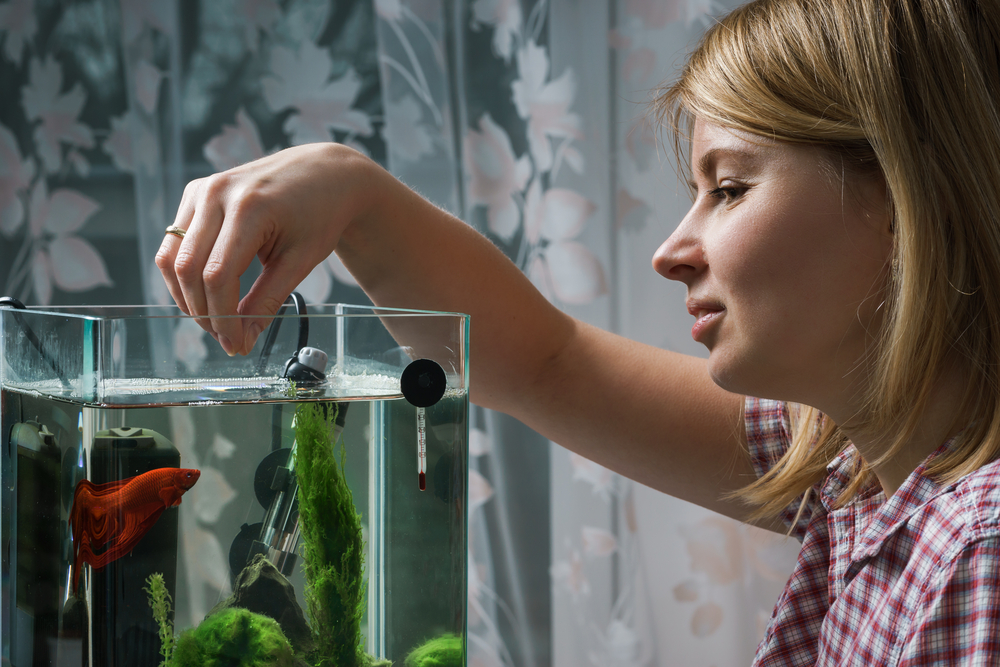
Quick Tips For Happy Bettas
If you want to keep things simple, these basics cover the most important parts of betta care without overwhelming you.
- Skip the herbs: Stick to aquarium plants only.
- Think rhythm: Lights on in the day, off at night.
- Mix it up: Bettas enjoy variety—alternate between pellets, frozen foods, and the occasional live treat.
- Cover the surface: Floating plants or decorations give them security and shade.
- Watch for quirks: Headbutting, bubble nests, and flare shows are all part of their personality.
For more, explore our complete betta fish care guide.
What These Questions Teach Us
At the end of the day, caring for a betta is about more than rules; it’s about learning their quirks and enjoying the little moments.
These questions remind us that every fish has a story, and every mistake is a chance to learn. Whether your betta is named Bingo, Cadillac, or something else entirely, the best thing you can do is keep observing, keep asking questions, and keep celebrating those little fin-flips of joy.
